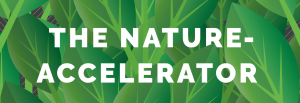World’s First Nature-Based Accelerator Graduates Initial Cohort Of Start-Ups

19 July 2018 | The ECOSTAR Nature-Accelerator graduated its first cohort of nature-based startups today, concluding with a Demo Day at which the startups will pitch their business ideas to private and public investors. The event will be held at the world’s oldest botanical garden, in Padua, Italy–a fitting location for the world’s first startup accelerator focusing on early-stage impactful businesses in the agriculture, forestry, natural resource and ecotourism sectors.
At Demo Day, the eight startups will pitch innovative business ideas including cricket-based protein powder, sustainable smallholder-produced Swahili honey, low-impact fuels made from discarded palm kernels, a new app for sharing green spaces, Agritech 4.0, furniture made from discarded wood, cryptocurrency tree-planting campaigns, and sustainable locally-produced cooking oil.
The Nature-Accelerator is hosted by Etifor Srl and the University of Padua’s Department of Land, Environment, Agriculture and Forestry (TESAF), with seed investment from Fledge, a Seattle-based impact investor. The project is supported by the ECOSTAR alliance of businesses and universities, which include Forest Trends’ Ecosystem Marketplace, Forest Design, NEPCon, Ricardo Energy & Environment, the Polytechnic University of Madrid, the University of Manchester, and the Transilvania University of Brasov. The European Commission, the Veneto Region and Fledge have put together a financial package of over EUR1.3 million euros to support ECOSTAR’s work to build an entrepreneurship and innovation hub for nature-based companies.
The eight startups hailing from seven countries selected to participate in the Nature Accelerator completed an intensive eight-week program hosted by the University of Padua in Italy, and received EUR $30,000 in seed investments and support services.
Half of this investment comes from Fledge, which has seen interest in “green” startups grow. “We chose The Nature Accelerator because we wanted to further expand our portfolio in Europe by investing in sustainable startups,” says Fledge’s CEO Michael Luni Libes. “Investing in green startups can be more profitable than investing in public companies and much more incisive. Fledge can count on the investments of more than 60 entrepreneurs who have so far paid around EUR2.5 million into green projects, EUR120,000 of which will go to the [Padua] Accelerator.”
“The University of Padua has rediscovered the importance of working with the public and private sectors to improve the impact of research on the environment and society,” explains Alessandro Leonardi, CEO of Etifor, a company that itself is originally a University of Padua spin-off. “The Nature-Accelerator is an example of how the University and the Research Development Office, together with impact investors and the various companies dedicated to technology transfer, are stimulating a community linked to innovation and entrepreneurship in the agrifood and management of natural resources.”
Please see our Reprint Guidelines for details on republishing our articles.

